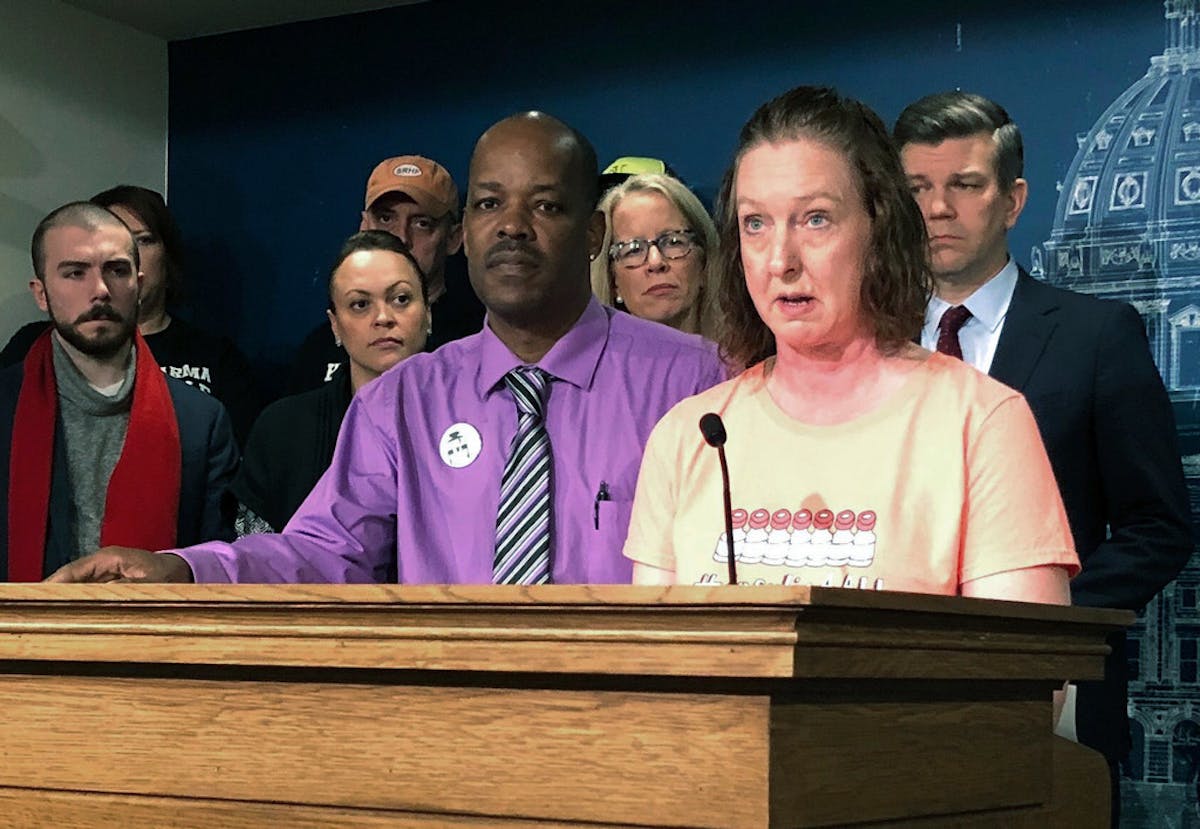Minnesota Senate Majority Leader Paul Gazelka, a leading gun rights advocate, says he would hold hearings on any gun legislation that passes the House, providing a slight opening for a pair of Democratic proposals to expand criminal background checks and adopt a "red flag law."
"It hasn't been a priority of ours, but what I will say is if the House passes universal background check and red flag laws off the floor, I am committed to giving those bills and other gun bills a hearing in the Senate," Gazelka told the Star Tribune in an interview.
But Minnesota Democrats remain skeptical.
The Nisswa Republican has previously said he would "do everything in my power" to block new gun control measures this session. And Gazelka's pivot does not align with current plans in the House, where Democratic leaders plan to fold their gun measures into a broader public safety package.
Meanwhile the Republican-controlled Senate has no plans to hear two related gun control measures before a Friday legislative deadline.
"I'm not really interested in playing political games and rhetorical games," said House Speaker Melissa Hortman, DFL-Brooklyn Park. "If the Senate is committed to having a meaningful conversation, then that's really good. And if the Senate is trying to look for a way to shift blame to some other entity for their failure to take action, I don't think that's a very hopeful sign."
Minnesota DFLers have made enacting new gun laws a top priority this session, crediting a sustained activist movement animated by last year's high school shooting in Parkland, Fla., which killed 17.
One DFL measure would expand criminal background checks to gun shows and other private transfers.
The other would allow relatives or law enforcement to petition a judge for an "extreme risk protection order" to take firearms from people determined to be a serious threat to themselves or others.
The bills have advanced through two House subcommittees, and Hortman said that if the Senate does not pass companion legislation, both would likely be offered in an omnibus package or as amendments to other bills. That would push the gun measures into broader legislative battles at the end of the session.
Proponents of background checks and red flag laws have been applying pressure on Republican senators in suburban districts that include Democratic House seats or which were won by Gov. Tim Walz in November.
Gwen Walz, the first lady, has spoken out against the Senate "standing in the way of democracy."
She led chants of "Put it up for a vote" at a rally this month, when she told Republicans in districts won by the governor that if they refuse to act on the bills, "We are coming."
Gazelka said any Senate hearings on gun legislation would also need to include Republican-backed proposals to increase penalties for illegal gun transfers and create a "stand your ground" law allowing deadly force for self-defense.
Sen. Paul Anderson, R-Plymouth, one of several senators in districts won by House Democrats in 2018, is sponsoring a bill to enhance penalties for illegal gun transfers. But he views the background check and red flag measures as an overreach.
"We need to do what we can to make sure violent criminals and those with mental health issues who pose a threat to themselves or others don't have access to guns — while protecting the Second Amendment rights," Anderson said.
Luke Entelis, counsel for Everytown for Gun Safety, a New York-based nonprofit, said that enhancing penalties for illegally transferring firearms would do little to curb gun violence.
He said it is difficult to prove someone knowingly gave a firearm to someone barred from possessing it.
"The best solution for public safety is a criminal-background check on every gun sale, full stop," Entelis said, "Lawful gun owners who aren't prohibited possessors will have nothing to worry about and people whose hands we want to keep guns out of will have a much tougher time."
Background check and red flag legislation would face long odds in the Senate's Judiciary and Public Safety Finance and Policy Committee, which has six Republicans and three DFLers.
The committee split along party lines this month to reject another controversial issue: recreational marijuana.
Sen. Ron Latz, DFL-St. Louis Park, who is sponsoring the Senate's red flag and background check bills, believes Gazelka's decision to entertain hearings is influenced by increasing public alarm about school shootings and other types of gun violence, which DFLers cite as a decisive factor in both the 2018 House elections and the upcoming 2020 battle for the Senate.
"I'm more optimistic certainly," Latz said. "I think and hope that the Senate will align itself better with what the public wants on this now by having hearings and hopefully voting for the bills."
Gazelka said the DFL-backed gun bills face bipartisan opposition in the Senate, where Republicans maintain a 35-32 advantage. Minority Leader Tom Bakk, DFL-Cook, has previously spoken against universal background checks. But on Wednesday, a spokeswoman said Bakk was pleased that Gazelka "is finally showing some willingness to do what Minnesotans want and expect — hold public hearings."
Stephen Montemayor • 612-673-1755 Twitter: @smontemayor
Only 1 in 3 US adults think Trump acted illegally in New York hush money case, AP-NORC poll shows
Several gun bills inspired by mass shooting are headed for final passage in Maine

